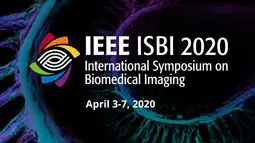Unsupervised Merge-Residual Learning for Time-of-Flight MRI
Hyungjin Chung, Eunju Cha, Leonard Sunwoo, Jong Chul Ye
-
Members: FreeSPS
IEEE Members: $11.00
Non-members: $15.00Length: 13:19
03 Apr 2020
Time-of-flight MR angiography(TOF MRA) is a predominant imaging method to visualize flow within the vessels, especially for neurovascular imaging. To measure flow precisely, it is hugely beneficial if MR scans can be accelerated whereas the acquisition of MR scans are inherently very slow. For compensation, a myriad of deep-learning based reconstruction methods to reconstruct MRI from under-sampled k-space have been proposed most of which aims for supervised learning. In this work, we propose a novel unsupervised method for TOF MRA acceleration for cases where we have limited access to paired training data. By taking advantage of both residual and non-residual connections of neural network architecture, we also propose a merge-residual connection which is highly efficient for de-aliasing the pattern introduced from aggressive down-sampling.



